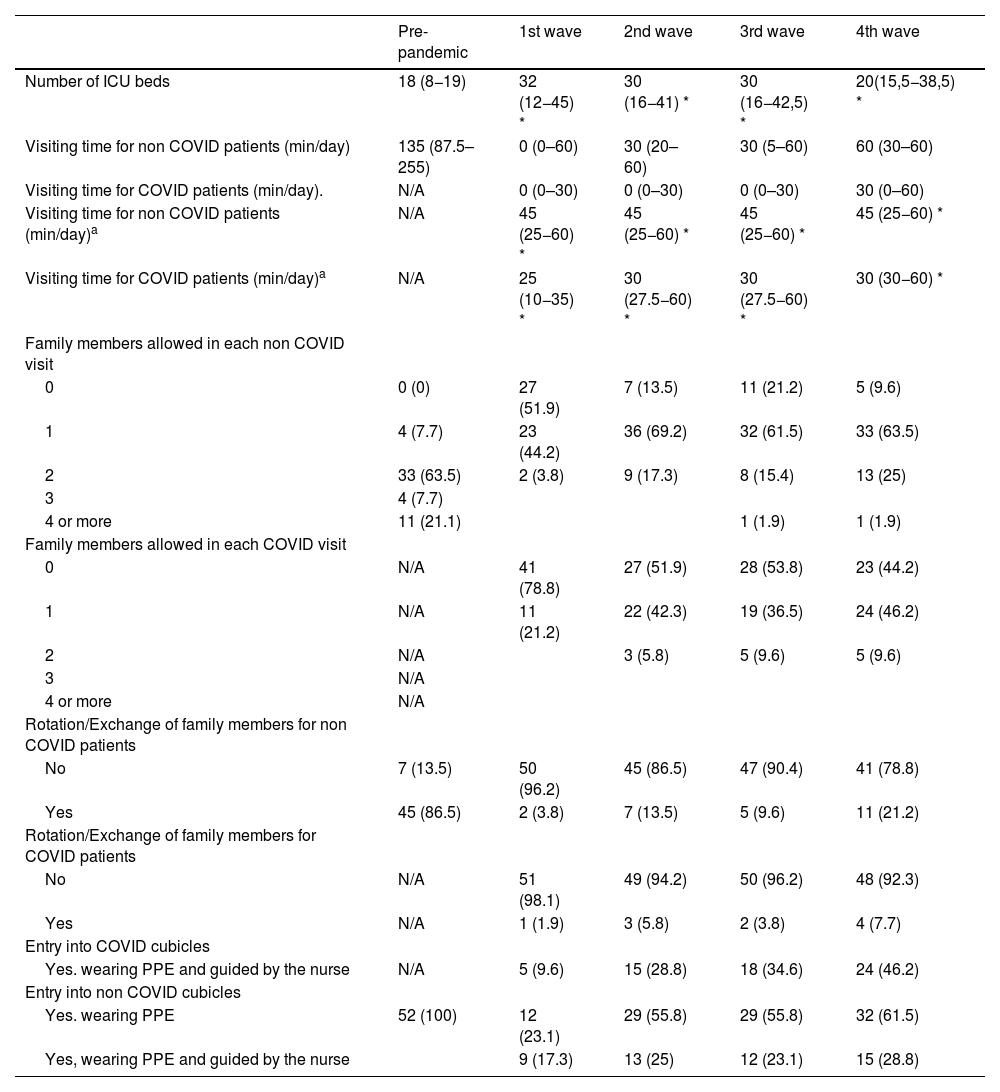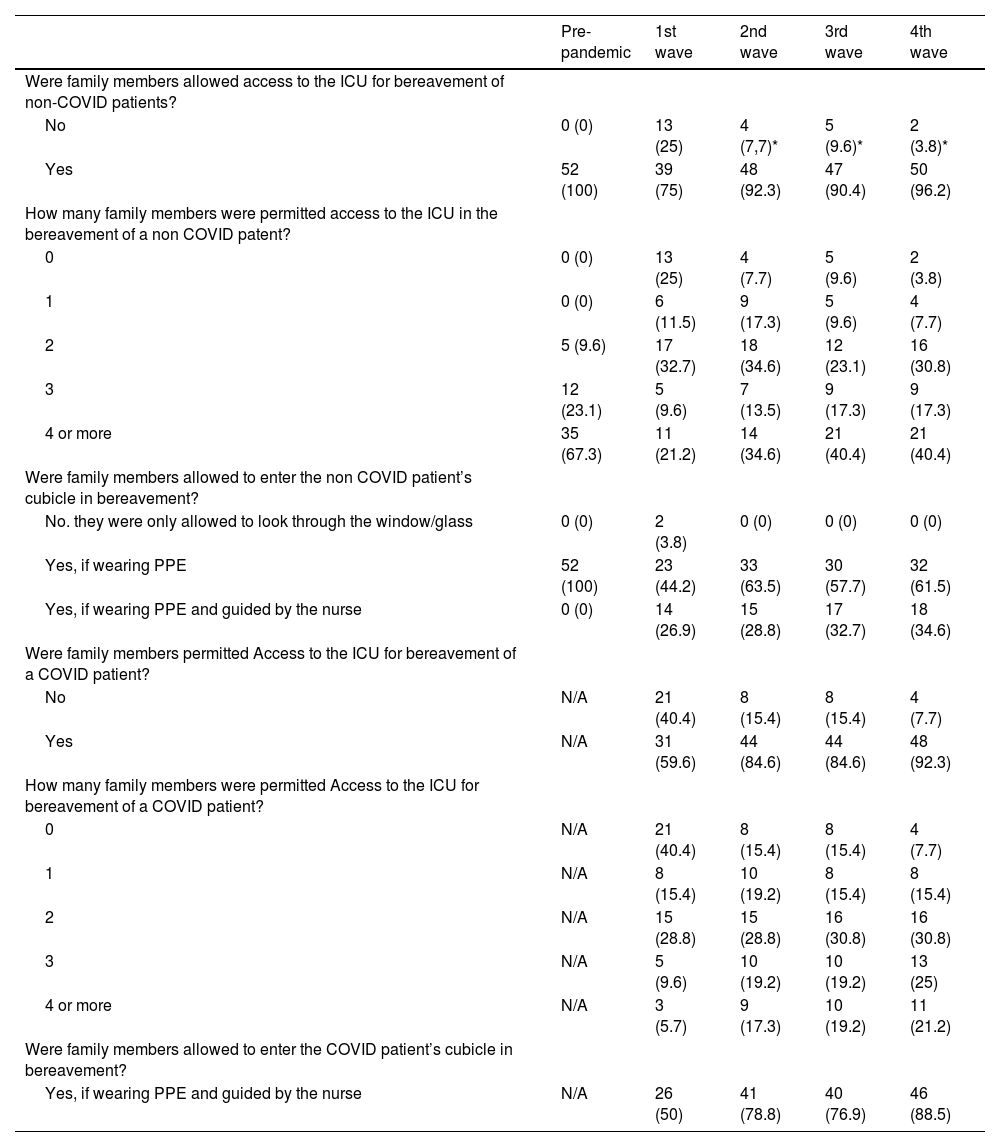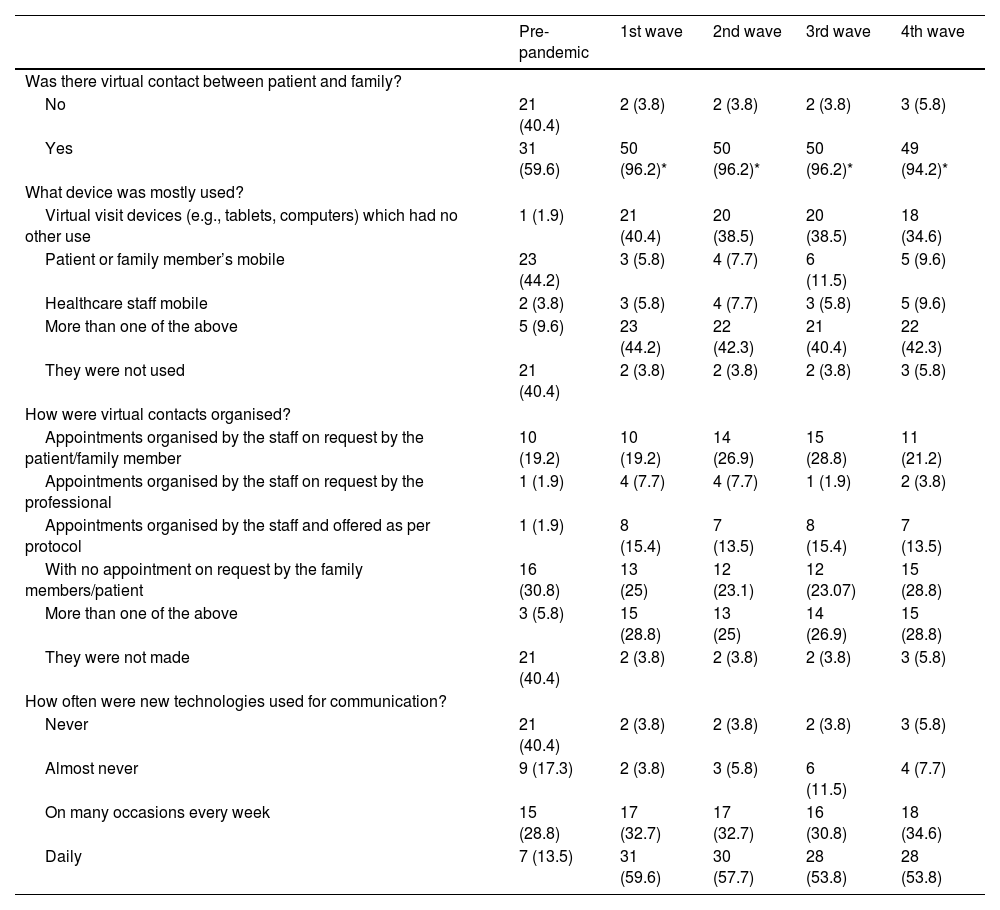The pandemic derived from the SARS-CoV-2 infection led to changes in care for both relatives and intensive care patients during the different waves of incidence of the virus. The line of humanization followed by the majority of the hospitals was seriously affected by the restrictions applied. As an objective, we propose to know the modifications suffered during the different waves of the SARS-CoV-2 pandemic in Spain regarding the policy of visits to patients in the ICU, monitoring at the end of life, and the use of new technologies. of communication between family members, patients and professionals.
MethodsMulticenter cross-sectional descriptive study through a survey of Spanish ICUs from February to April 2022. Statistical analysis methods were performed on the results as appropriate. The study was endorsed by the Spanish Society of Intensive Nursing and Coronary Units.
Results29% of the units contacted responded. The daily visiting minutes of relatives dropped drastically from 135 (87.5–255) to 45 (25−60) in the 21.2% of units that allowed their access, improving slightly with the passing of the waves. In the case of bereavement, the permissiveness was greater, increasing the use of new technologies for patient-family communication in the case of 96.5% of the units.
ConclusionsThe family of patients admitted to the ICU during the different waves of the COVID-19 pandemic have suffered restrictions on visits and a change from face-to-face to virtual communication techniques. Access times were reduced to minimum levels during the first wave, recovering with the advance of the pandemic but never reaching initial levels. Despite the implemented solutions and virtual communication, efforts should be directed towards improving the protocols for the humanization of healthcare that allow caring for families and patients whatever the healthcare context.
La pandemia derivada de la infección por SARS-CoV-2 propició cambios en los cuidados tanto a familiares como a pacientes de cuidados intensivos durante las diferentes olas de incidencia del virus. La línea de humanización seguida por la mayoría de los hospitales se vio gravemente afectada por las restricciones aplicadas. Como objetivo, planteamos conocer las modificaciones sufridas durante las diferentes olas de la pandemia por SARS-CoV-2 en España respecto a la política de visitas a los pacientes en UCI, el acompañamiento al final de la vida, y el uso de las nuevas tecnologías de la comunicación entre familiares, pacientes y profesionales.
MétodosEstudio descriptivo transversal multicéntrico mediante encuesta a las UCI españolas desde febrero a abril de 2022. Se realizaron métodos de análisis estadísticos a los resultados según lo apropiado. El estudio fue avalado por la Sociedad Española de Enfermería Intensiva y Unidades Coronarias.
ResultadosRespondieron un 29% de las unidades contactadas. Los minutos de visita diarios de los familiares se redujo drásticamente de 135 (87,5–255) a 45 (25−60) en el 21,2% de unidades que permitían su acceso, mejorando levemente con el paso de las olas. En el caso de duelo, la permisividad fue mayor, aumentando el uso de las nuevas tecnologías para la comunicación paciente-familia en el caso del 96,5% de las unidades.
ConclusionesLa familia de los pacientes ingresados en UCI durante las diferentes olas de la pandemia por COVID-19, han sufrido restricciones en las visitas y cambio de la presencialidad por técnicas virtuales de comunicación. Los tiempos de acceso se redujeron a niveles mínimos durante la primera ola, recuperándose con el avance de la pandemia pero nunca llegando a niveles iniciales. A pesar de las soluciones implementadas y la comunicación virtual, los esfuerzos deberían encaminarse a la mejora de los protocolos de humanización de la asistencia sanitaria que permitieran el cuidado de familiares y pacientes cualquiera que sea el contexto sanitario.
Article
Diríjase al área de socios de la web de la SEEIUC, (https://seeiuc.org/mi-cuenta/iniciar-sesion/) y autentifíquese.











